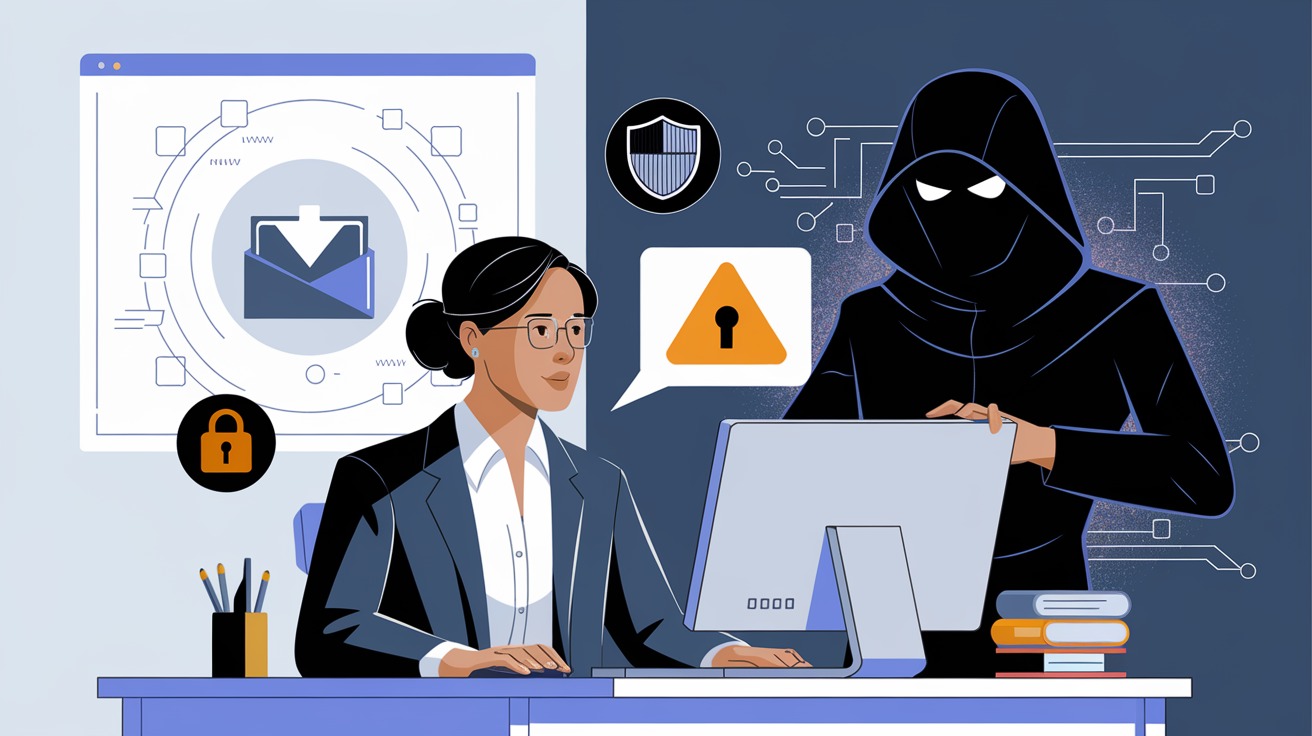
🚨 Are You Making These Costly Cybersecurity Mistakes?
Accounting firms are gold mines for hackers. Between tax returns, bank statements, and Social Security numbers, a cybercriminal can steal millions from a single data breach. The problem? Many firms don’t realize they’re making security mistakes until it’s too late.
Here are five common cybersecurity mistakes CPAs make—and how to protect your firm.
🔹 1. Using Weak or Reused Passwords
💡 “Password123” isn’t cutting it anymore.
The mistake:
Many accountants use simple or repeated passwords across multiple accounts. If one account gets breached, hackers can access everything—email, tax software, bank logins, and more.
The fix:
✅ Use a password manager to generate and store strong, unique passwords
✅ Set up Multi-Factor Authentication (MFA) for email, accounting software, and cloud accounts
✅ Change passwords every 3-6 months to prevent long-term exposure
🔹 2. Clicking on Phishing Emails
💡 Hackers love tricking CPAs with fake IRS emails.
The mistake:
Cybercriminals send emails pretending to be the IRS, QuickBooks, or even a client, tricking accountants into clicking malicious links or downloading malware.
The fix:
✅ Double-check email senders before clicking links or opening attachments
✅ Train your team to recognize phishing emails (misspellings, urgent requests, sketchy links)
✅ Use email filtering tools to block phishing attempts before they reach your inbox
🔎 Example of a phishing email:
❌ Subject: “URGENT: Your QuickBooks Account Has Been Suspended”
✔ How to spot it: Hover over the link—does it go to a weird-looking URL? Red flag!
🔹 3. Not Encrypting Client Financial Data
💡 Your clients trust you with their most sensitive information—don’t let hackers steal it.
The mistake:
Sending financial documents over unencrypted email or storing tax files on an unsecured server makes it easy for cybercriminals to steal client data.
The fix:
✅ Use encrypted file-sharing platforms (like ShareFile or OneDrive) instead of email attachments
✅ Store client data on secure, cloud-based servers with end-to-end encryption
✅ Enable full-disk encryption on laptops to protect data in case of theft
🔹 4. Ignoring Software Updates & Security Patches
💡 Hackers exploit outdated software to sneak into your systems.
The mistake:
Many firms delay software updates because they’re busy—or they assume updates aren’t urgent. But unpatched software is a hacker’s dream—they can exploit security flaws in outdated versions of:
- QuickBooks, Xero, and tax software
- Microsoft 365, email platforms, and cloud apps
- Antivirus and firewall programs
The fix:
✅ Enable automatic updates for all accounting software & security tools
✅ Work with an IT provider to apply patches regularly (so you never fall behind)
✅ Use a managed IT service that monitors your systems 24/7
🔹 5. No Data Backup or Disaster Recovery Plan
💡 Ransomware attacks can lock you out of your files—but a backup can save you.
The mistake:
If your firm doesn’t have daily backups, you risk losing years of financial records in a ransomware attack, natural disaster, or accidental deletion.
The fix:
✅ Use automated daily cloud backups for client data and tax software
✅ Store backups in multiple locations (cloud + offsite storage)
✅ Test your recovery process to ensure you can restore files quickly if disaster strikes
🚀 Secure Your Accounting Firm Before It’s Too Late
Cybercriminals are constantly looking for weak spots in accounting firms. Don’t wait until an attack happens—take action now to protect your data, your clients, and your reputation.
🔹 Need expert cybersecurity support? We’ve got you covered.
📞 Call us at 361-575-7656
📅 Schedule a Free IT Security Audit Today